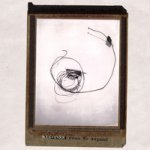
Hauschka Room to Expand
(130701/FatCat)
Funny things pianos: for a long time if you played the piano you were no more than an accompanist; one playing the piano is described simply as being "at" the instrument, as if the noise that came out was simply chance. This Christmas, a distant relative of mine returned a CD given as a present, as the collection of baroque church music included an anachronous piano, instead of the more suitable harpsichord. In popular music, pianos suggest grand pretensions - remember Axl Rose painfully picking out notes like a chimp performing cardiac surgery? - overblown emotions - Coldplay, anyone? - or high camp. Step forward, Reginald Dwight.
In the last few years, however, pianists with backgrounds as diverse as trance and jazz have been creating innovative, intelligent works that take the pioneering classical works of Satie, Ravel and Debussy, with their precision and emotional charge, and hammer them through the square peg of experimental twentieth-century composers such as John Cage and Arvo Pärt. Curiously, a couple of the very best of them happen also to be on FatCat's offshoot label, 130701, namely Sylvain Chauveau and the always brilliant Max Richter.
Hauschka is the alias of Dusseldorf's Volker Bertelmann, a pianist and composer, whose work moves on from John Cage's developments in the field of "prepared" or "treated" piano (you take a piano, open it up, and either put extra things in or take things out). Often such works can give the impression that one is simply listening to slightly downbeat classical music played from within a distant shed and the results may be less than compelling. Bertelman's rather attractive twist is to take the alterations and modifications that come from, for example, tying guitar strings round piano strings, and create music that in its movement and arrangement is in fact much closer to modern electronica or even dance music.
Room to Expand eschews purism throughout: although on tracks like Paddington the piano works on its own as a driving rhythm section, elsewhere he is not afraid to throw in synths, drums and electric bass. He does upbeat, contemplative, and even minimalist, as on Sweet Spring Come. It's an album that flows beautifully, and unlike many in its field stands up to close listening as well as holding its own as more than mere background. Hauschka has produced an excellent addition to a burgeoning genre.
20 January, 2007 - 14:02 — Ben Bollig